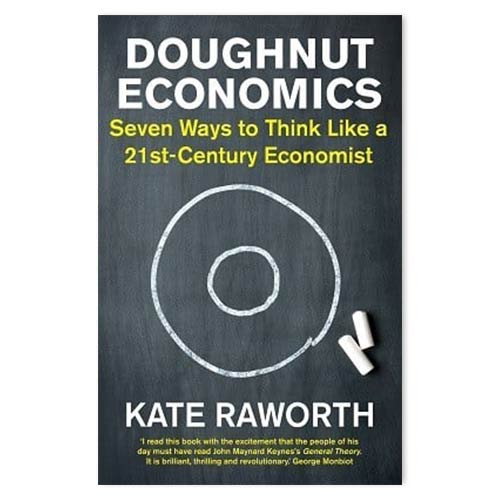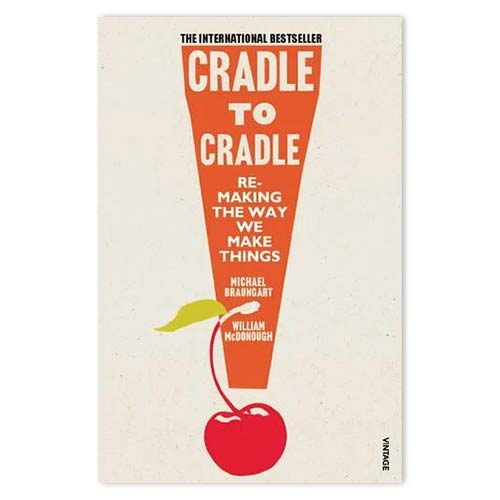Sustainability in business is a hot topic, many business owners are becoming increasingly conscious of the importance of sustainability in their operations. Achieving your sustainability goals for your business may appear overwhelming at first. Regardless of whether you’re just beginning or already making significant progress, here are three insightful books to guide you on the path towards a more sustainable business.

Doughnut Economics: Seven Ways to Think Like a 21st-Century Economist
SHOP
Doughnut Economics: Seven Ways to Think Like a 21st-Century Economist is being hailed as a game-changer in the field of economics, as it tackles the issues that have contributed to our current economic crisis. However, it goes beyond mere criticism of mainstream economics. Author, Kate Raworth, presents a fresh perspective on how we can navigate our way out of this crisis. She offers an alternative roadmap that not only addresses the needs of businesses but also takes into account the needs of the planet. This means moving away from an economic model that is solely focused on growth. While this idea may make CEOs uncomfortable, Raworth’s book has received widespread acclaim, being recognised as a Sunday Times Bestseller and named as a Financial Times and Forbes Book of the Year.

Cradle to Cradle: Remaking the Way We Make Things, by William McDonough and Michael Braungart
SHOP
Cradle to Cradle highlights the significance of efficiency as a key driver of profitability. By embracing a circular waste management model, businesses can effectively streamline their resources, leading to reduced costs and increased profitability. This approach encourages businesses to rethink their resource utilisation strategies and find innovative ways to minimise waste and maximise value. McDonough and Braungart’s insights provide valuable guidance for businesses seeking to optimise their resource and minimize their environmental impact.

Natural capitalism: Creating the Next Industrial Revolution, by Paul Hawken, Amory Lovins and Hunter Lovins
SHOP
The world economy has relied heavily on natural resources for a significant amount of time. However, in order to avoid irreversible damage to the environment caused by rising global temperatures, there is a pressing need for a shift in this dependency. In Natural Capitalism, Authors Lovins and Hawkens explains that transitioning to a sustainable economy is crucial for our long-term survival. They emphasise the importance of resource productivity and suggest that enhancing the quality and efficiency of services should take precedence over the mere circulation of money.
A business’s sustainability strategy aims to combat climate change by reducing waste and emissions, which are known to be major contributors. The negative effects on our environment, such as air and water pollution and natural disasters, are becoming increasingly evident. However, achieving net zero and preventing a 2ºC temperature rise requires a collective effort from all businesses. By making necessary changes, businesses can play a crucial role in mitigating harm and creating a positive environmental impact.




